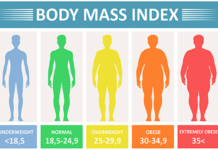Introduction:
In weight loss, the perception of healthful eating is a fundamental cornerstone. It’s not shedding pounds but fostering a lifestyle promoting standard well-being. In this discourse, we delve into the essentials of healthful consuming conduct, elucidating techniques for weight loss success through sustainable dietary practices.
Understanding Healthy Eating:
Healthy consumption transcends the mere act of eating food. It embodies a holistic approach encompassing mindful selections, balanced vitamins, and moderation. Fundamentally, wholesome eating involves embracing complete, minimally processed meals rich in crucial nutrients while limiting the intake of empty calories, refined sugars, and saturated fat.
Critical Components of Healthy Eating Habits:
Portion Control:
Portion manipulation is pivotal for weight control. It entails moderating serving sizes to align with personal power necessities. Employing smaller plates, practising aware eating, and paying heed to satiety cues are valuable resources in regulating portion sizes and preventing overconsumption.
Balanced Nutrition:
A balanced food plan contains a numerous array of meal groups, along with culmination, veggies, complete grains, lean proteins, and wholesome fat. Prioritizing nutrient-dense foods fosters satiety sustains strength ranges, and fortifies ordinary health. Strive for variety and moderation, ensuring each meal consists of components from exclusive food companies.
Hydration:
Adequate hydration is often underestimated yet crucial for premier metabolic function and appetite regulation. Water no longer handiest quenches thirst but also aids digestion, flushes pollutants, and curbs useless calorie intake. Aim for a minimum of eight-10 glasses of water daily, adjusting intake based on the person’s wishes and interest ranges.
Mindful Eating:
Mindful eating advocates cultivating cognizance and intentionality throughout meals, fostering a deeper reference to meals and body cues. Practice aware chewing, savouring flavours, and recognizing starvation and fullness signals. By ingesting slowly and attentively, you’re more likely to make knowledgeable meal choices and prevent senseless overeating.
Meal Planning and Preparation:
Planning food earlier permits better manipulation of meal picks and portions, mitigating the temptation of impulsive, dangerous alternatives. Dedicate time for meal prep, stocking up on wholesome components and making ready nutritious food and snacks. Batch cooking and portioning meals streamline the process, ensuring dietary adherence amidst busy schedules.
Strategies for Weight Loss Success:
Set Realistic Goals:
Establish workable, realistic goals tailor-made to your person’s needs and circumstances, rather than fixating entirely on the quantity on the scale, consciousness on holistic health outcomes, which include improved strength degrees, more advantageous health, and typical well-being. Celebrate small victories alongside the adventure, maintaining motivation and momentum.
Gradual Dietary Modifications:
Implement gradual, sustainable modifications in your nutrition, keeping off drastic regulations or fad diets. Start by incorporating more fruits, vegetables, and entire grains into your meals, even as regularly decreasing your intake of processed ingredients, sugary liquids, and unhealthy fats. Sustainable development hinges on long-term way-of-life adjustments in preference to short-lived dietary extremes.
Keep Track of Food Intake:
Maintaining a meals magazine or using mobile apps can heighten cognizance of dietary styles, calorie consumption, and nutrient consumption. Track food, snacks, and drinks diligently, noting element sizes and dietary content. This practice fosters responsibility and enables the identification of capacity regions for development or modification.
Foster a Supportive Environment:
Surround yourself with a supportive community of your family, pals, or online groups sharing similar health goals. Seek encouragement, accountability, and camaraderie from individuals invested in your fulfilment. Engage in shared activities such as institution workouts, wholesome cooking classes, and well-being challenges, fostering mutual motivation and solidarity.
Prioritize Consistency Over Perfection:
Embrace the belief in progress, not perfection, spotting that dietary adherence fluctuates over the years. Accept occasional deviations or setbacks without succumbing to discouragement or self-grievance. Strive for consistency in wholesome eating, even permitting flexibility for occasional indulgences or special occasions. The cumulative impact of constant efforts propels sustained weight-loss fulfilment.
Incorporate Physical Activity:
Complement your healthful ingesting habits with regular physical interest to optimize weight reduction consequences and usual fitness. Engage in cardiovascular sports, strength training, and flexibility sporting events to beautify calorie expenditure, build lean muscle mass, and improve metabolic features. Aim for at least a hundred and fifty minutes of slight-intensity exercise or seventy-five minutes of vigorous-intensity exercise per week, in alignment with installed guidelines for physical activity.
Prioritize Sleep and Stress Management:
Recognize the interaction between sleep quality, strain degrees, and dietary behaviours in influencing weight management. Prioritize good enough sleep length and exceptional, aiming for 7-nine hours of restorative sleep in step with nighttime to modify starvation hormones, enhance metabolic performance, and optimize cognitive characteristics. Implement strain-discount strategies, which include mindfulness meditation, deep breathing sports, or yoga to mitigate strain-related eating behaviours and sell emotional well-being.
Seek Professional Guidance:
Consult with qualified healthcare professionals, which includes registered dietitians, nutritionists, or certified personal running shoes, for customized steering and assistance in navigating your weight loss adventure. These experts can provide evidence-based tips, tailor-made meal plans, and behaviour modification techniques to address individual desires, possibilities, and fitness worries. Collaborate with your healthcare group to establish sensible desires, display progress, and make informed modifications to your dietary and lifestyle lifestyle practices as desired.
Cultivate Resilience and Self-Compassion:
Embrace the inevitable challenges and setbacks encountered along your weight loss journey with resilience and self-compassion. Recognize that fluctuations in weight, dietary slip-ups, or unexpected boundaries are natural aspects of the procedure, now not signs of failure or inadequacy. Practice self-compassionate self-talk, reframing setbacks as possibilities for boom and studying in preference to reasons for self-criticism or despair. Cultivate a practical mindset, focusing on progress, resilience, and self-development instead of perfectionism or comparison to others.
Celebrate Non-Scale Victories:
Broaden your definition of achievement beyond the variety of sizes to embody a diverse array of non-scale victories indicative of advanced fitness and well-being. Celebrate achievements that include accelerated energy ranges, more desirable physical fitness, advanced temper, higher first-rate sleep, and heightened self-confidence, all resulting from your healthy eating behaviour and lifestyle changes. Acknowledging and appreciating these non-scale victories reinforces superb behaviours and boosts your commitment to long-term fitness and vitality.
Practice Intuitive Eating:
Embrace the principles of intuitive eating, which inspire attunement to inner starvation and fullness cues instead of inflexible adherence to outside dietary guidelines or restrictions. Allow yourself to devour when hungry and prevent whilst without problems happy, honouring your frame’s herbal alerts of hunger and satiety. Tune into your cravings, preferences, and nutritional needs without judgment or guilt, fostering a balanced and sustainable relationship with meals based on self-belief and self-care.
Conclusion:
Healthy ingesting conduct forms the bedrock of sustainable weight loss achievement, transcending mere nutritional regulations to encompass a holistic lifestyle technique. By embracing component manipulation, balanced nutrition, mindfulness, and strategic planning, individuals can cultivate dietary practices conducive to long-term fitness and well-being. Through sensible purpose-setting, gradual changes, and supportive environments, achieving and maintaining a wholesome weight becomes a plausible reality, fostering bodily transformation and a profound sense of energy and empowerment. Remember, the journey toward the most reliable fitness isn’t always a sprint but a marathon characterized by perseverance, resilience, and a steadfast dedication to self-care.






















